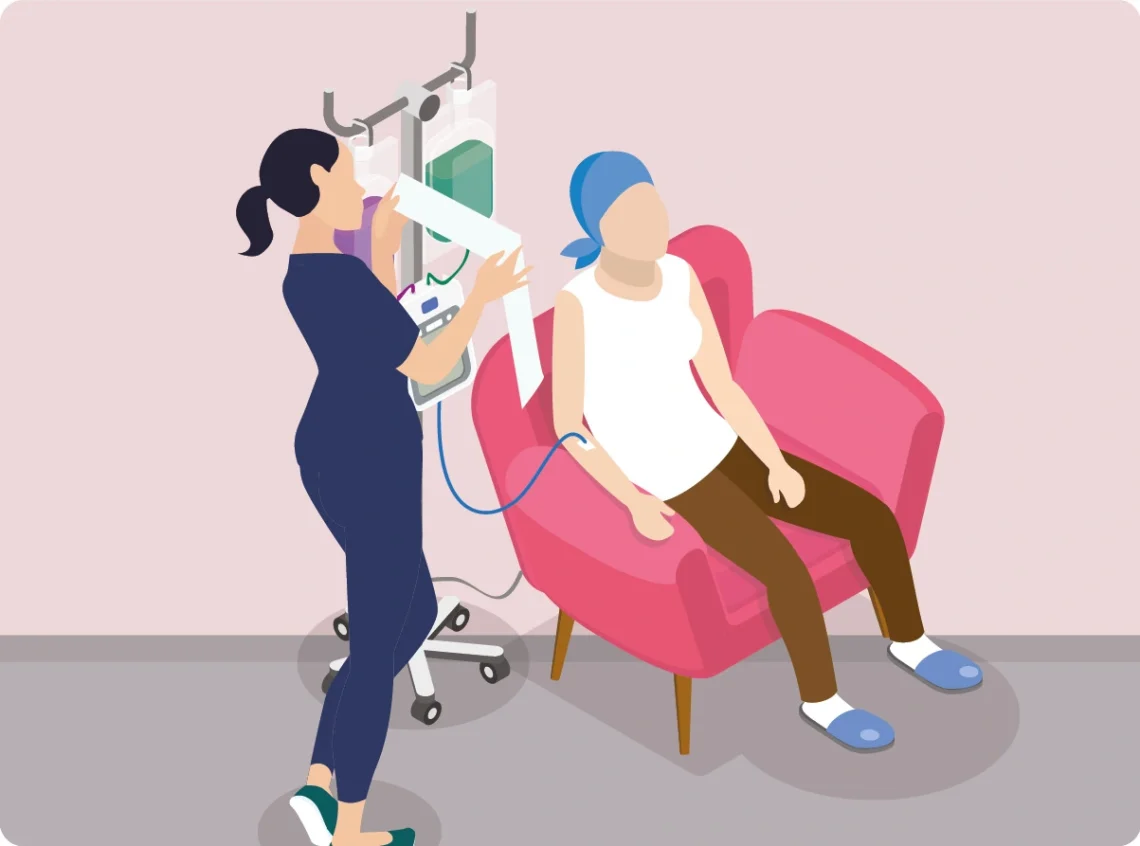Introduction
Cancer treatment, including chemotherapy, radiation, and surgery, can cause various side effects that make eating challenging. Loss of appetite, nausea, taste changes, mouth sores, and fatigue often affect a patient’s ability to consume and enjoy food. Yet, good nutrition is essential to maintain strength, support the immune system, tolerate treatments better, and improve recovery.
This article explores the challenges of eating during cancer treatment, practical nutritional strategies, and tips for managing common eating difficulties to help patients nourish their bodies effectively even when it’s hard.
Why Nutrition Matters During Cancer Treatment
- Supports immune function: Proper nutrition helps the body fight infections.
- Maintains body weight and muscle mass: Prevents weakness and treatment delays.
- Promotes healing: Supplies the nutrients needed for tissue repair.
- Improves energy levels: Helps combat fatigue.
- Enhances quality of life: Eating well can improve mood and well-being.
Common Nutrition Challenges in Cancer Treatment
1. Loss of Appetite
- Caused by treatment side effects or emotional stress.
- Can lead to unintentional weight loss.
2. Nausea and Vomiting
- Makes eating and retaining food difficult.
- May result in dehydration and nutrient deficiencies.
3. Taste and Smell Changes
- Foods may taste metallic, bitter, or bland.
- Loss of enjoyment in eating.
4. Mouth Sores and Dry Mouth
- Painful sores make chewing and swallowing difficult.
- Reduced saliva affects taste and digestion.
5. Difficulty Swallowing (Dysphagia)
- Side effects of radiation or surgery may cause swallowing problems.
6. Fatigue
- Makes meal preparation and eating a tiring task.
Nutritional Strategies for Eating Well
1. Focus on Small, Frequent Meals
- Eat 5-6 smaller meals or snacks instead of 3 large meals.
- Helps maintain calorie intake and reduces nausea.
2. Choose Nutrient-Dense Foods
- Opt for foods rich in protein, vitamins, and minerals.
- Examples: lean meats, eggs, dairy, legumes, nuts, fruits, and vegetables.
3. Manage Taste Changes
- Use herbs, spices, and marinades to enhance flavor.
- Try cold or room temperature foods if hot foods smell off-putting.
- Avoid metal utensils if food tastes metallic.
4. Stay Hydrated
- Sip water, herbal teas, broths, or electrolyte drinks.
- Avoid caffeine and sugary drinks that can cause dehydration.
5. Handle Nausea
- Eat bland, easy-to-digest foods (bananas, toast, rice).
- Avoid greasy, spicy, or strong-smelling foods.
- Try ginger or peppermint teas to soothe the stomach.
6. Adapt Texture for Mouth Sores or Swallowing Difficulties
- Choose soft, moist foods (mashed potatoes, yogurt, smoothies).
- Avoid rough, crunchy, or acidic foods that irritate sores.
- Use a straw or feeding aids if swallowing is difficult.
7. Boost Calories and Protein
- Add healthy fats like avocado, olive oil, and nut butters.
- Incorporate protein powders into shakes or soups.
- Snack on cheese, nuts, or eggs.
Tips for Caregivers
- Encourage a calm, pleasant eating environment.
- Help with meal prep or shopping if fatigue is severe.
- Respect patient’s food preferences and appetite fluctuations.
- Offer nutritional supplements if advised by a healthcare provider.
When to Seek Professional Help
- Significant unintentional weight loss (>5% body weight).
- Persistent nausea or vomiting lasting several days.
- Difficulty swallowing or severe mouth pain.
- Signs of dehydration (dizziness, dark urine).
- Nutritional deficiencies suspected.
A registered dietitian specialized in oncology nutrition can provide personalized advice and meal planning.
Sample Foods and Recipes
- Smoothies with fruit, yogurt, and protein powder.
- Soft scrambled eggs with cheese.
- Mashed sweet potatoes with olive oil.
- Oatmeal with honey and nuts.
- Chicken or vegetable broth soups.
Conclusion
Eating well during cancer treatment can be challenging but is vital for maintaining strength, managing side effects, and improving overall outcomes. By adopting flexible, patient-centered nutrition strategies and seeking support when needed, patients can better navigate these challenges and support their journey toward recovery.
FAQs:
What should I do if I lose my appetite during treatment?
Try eating small, frequent meals with nutrient-dense foods to maintain your energy and weight.
How can I manage taste changes caused by chemotherapy?
Use herbs and spices, eat cold or room-temperature foods, and avoid metal utensils if food tastes metallic.
What foods are good if I have mouth sores?
Soft, moist foods like yogurt, mashed potatoes, smoothies, and cooked cereals are easier to eat.
How important is hydration during cancer treatment?
Very important—drink plenty of fluids like water, herbal teas, and broths to stay hydrated.
When should I see a dietitian during cancer treatment?
If you have significant weight loss, difficulty eating, or persistent side effects affecting nutrition, consult a dietitian.






